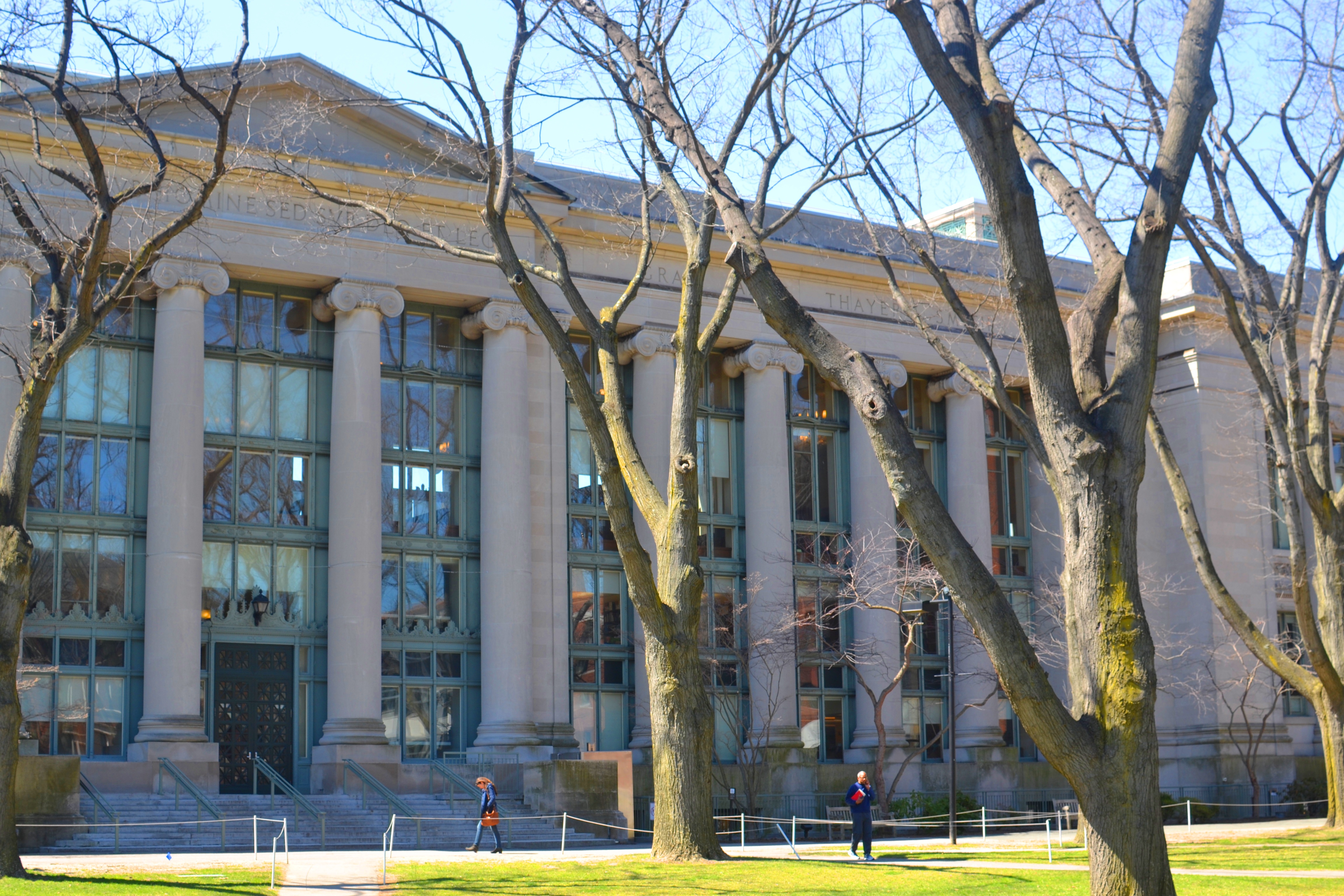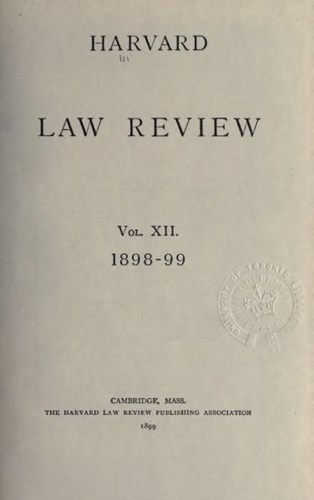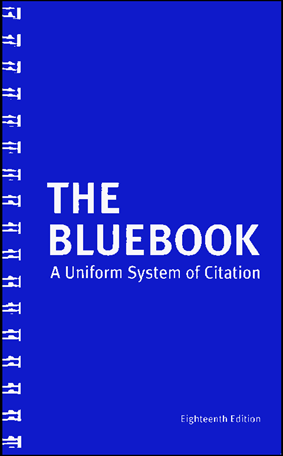
Law firms take law review work very seriously. We spoke to some keen reviewers to learn how to proceed.
A little while ago, we spoke to Jim Leipold, director of NALP (National Association for Law Placement), who offered up this pearl of wisdom: “Law firms still hire in very traditional and some would say ancient ways.” When it comes down to it, “it's still a credential and prestige-driven market. Despite all the thinking law firms do around hiring, most often it still depends on what school you went to, your GPA and whether you were on the journal. Those credentials are the given.” There are other factors involved of course – your work experience, maturity, commercial awareness, cultural fit etc. – but most firms have a baseline when they're considering applicants, and your school, GPA and whether you were on the journal are significant. Fortunately, you can control these factors. In this article, we're going to look at one of the three in particular: participating in your law school's law journal.
We've interviewed current members of some law reviews to get an insight into the experience, to find out whether it's for you, and we've compiled interviews with hiring partners at top BigLaw firms to understand how much of a difference it really makes in getting hired, and why.
What is law review?
Excuse us while we cover the basics: a law journal and a law review are essentially the same thing. The organisations have different names, but whatever they call it, a law review is an academic journal staffed by students of a law school (though it is independent of the law school). Faculties may provide assistance, but students are in control, and do the leg work. Where academic journals within other disciplines institute a strict system of peer review by other academics, in this case it’s the students who take charge of both the day-to-day running and publishing of the journal, and the editing of the pieces featured within each release. It's a historical peculiarity, but one which brings great reward to law students (more on this later).
 Law reviews publish a number of issues each year – ranging from as low as four, to as high as eight – which form one complete volume. Many have some serious vintage; the oldest, The University of Pennsylvania Law Review (originally the American Law Register), was founded in 1852. Traditionally, these publications took a physical form, and that's still largely true – but most can also be seen online, with their archives available for free. Some, with the advent of technology, have expanded their output to include blog posts and other additional content.
Law reviews publish a number of issues each year – ranging from as low as four, to as high as eight – which form one complete volume. Many have some serious vintage; the oldest, The University of Pennsylvania Law Review (originally the American Law Register), was founded in 1852. Traditionally, these publications took a physical form, and that's still largely true – but most can also be seen online, with their archives available for free. Some, with the advent of technology, have expanded their output to include blog posts and other additional content.
The vast majority of law schools have one (we couldn't find one that didn't!), and in fact, many colleges have a good number. The usual structure consists of one main law review/journal with a broad focus, and then a number of more specific publications. For example, Columbia Law School has its titular Columbia Law Review, and then 13 more journals, including the Columbia Journal of Tax Law, The American Review of International Arbitration, Columbia Human Rights Law Review and Columbia Business Law Review.
However, when people talk about law review, the shorthand usually refers to the flag-bearing, general review. It's often the oldest organisation, and typically bears the most prestige. Gaining membership of this journal, with its attached prestige, is held in high regard throughout the discipline, from private practice to public interest.
These reviews cover every branch of law, but they usually consider where the law could go in the future. It's all about examining the law as it is, what isn't working, and what should be done to solve problems with the judicial system, or, more widely, problems which afflict society or the economy.
As such, the material can make fascinating reading. A recent article in the Iowa Law Review was titled: “Looks Can Kill: The Dark Side of Indoor Tanning and What States Need to do to Help Protect Young Adults from This Deadly 'Glow.'” Meanwhile, Vanderbilt Law Review had an article named: “The Ideological Consequences of Selection: A Nationwide Study of the Methods of Selecting Judges.” And The University of Chicago Law Review published “Regulation by Threat: Dodd-Frank and the Nonbank Problem.” You get the picture. It really can be anything, but it's frequently topical, and politically charged.
Gaining membership of this journal, with its attached prestige, is held in high regard throughout the discipline, from private practice to public interest.
Articles are written by legal academics, professors, judges or practicing lawyers, with a dizzying array of experience and expertise. Harvard Law Review even managed to snag Obama to write a “commentary” in 2017 entitled “The President's Role in Advancing Criminal Justice Reform.” That's an unusual occurrence, but it demonstrates the weight and respect reviews can command. They are a mainstay of US legal academia. Articles have been cited in the Supreme Court, used to influence and sculpt legislation, and the past members of the most prominent reviews read like a who's who of legal superstars. Obama was in fact the editor-in-chief of the review when he was a student at Harvard Law (the first African American to hold the position), which only goes to prove the point.
Crucially, students also write content, called 'notes,' which sit alongside the 'articles' written by prestigious legal scholars. It's a key part of the appeal for students, but they're hefty projects. Students have to put in serious work to have even a chance of theirs being published.
Why should you care?
This is thrilling stuff, but let's get to the crux of the matter. Why should you, a time-pressed, frazzled, finger-in-every-conceivable-pie student, get involved in this review carry-on? Simply put, it could get you a job. We've already said this in our introduction, we know, but it's worth some detail. Take a look at our hiring partner interviews, which we conduct with firms as part of our annual research. An impressive amount explicitly mention law review as something they'd value.
When asked, 'what kind of extracurricular activities does the firm appreciate?' One hiring partner replied: “The obvious one with respect to law school is doing law review. Either associates being honored with it, or seeking that out and displaying the aptitude at writing which we think is important. Part of our job is to write well.” Two more glowing endorsements? Yes please.
-
Diana Cardona Downs, chief legal talent officer, Morrison & Foerster: “We want to see enthusiasm for practicing and learning, and a demonstration of intellectual agility. That is shown through grades and engagement with a journal or project. We want to see what excites them intellectually. It matters to clients so it is what matters to us. And there is teamwork and collaboration too – we want to see that demonstrated.”
-
Brenda Dieck, partner at White & Case: “We want students who have done well academically and who love the law. Law journal experience is always a plus because we want great writers.”
To hiring partners, it's a credential which speaks volumes. Writing skill, editing skill, critical thinking, attention to detail, gumption, commitment, time management, co-ordination with others and legal knowledge (especially thinking about how the law might change) – all of these and more could be feasibly attained, and proved, through the experience of being on a journal. Gaining those qualities – whether you're doing it strictly for personal development or to impress others – is something worth considering.
To get a bit more detail on how it's viewed by hiring partners, we spoke to Keri Ann Law, chair of the hiring committee at New York litigation expert, Kramer Levin. “When you're talking about the top journal at a law school, it's something we look at – it makes them stand out. It's important because your writing can always improve, and it shows a level of commitment. We certainly place value on that.” Having been an editor on the Fordham Law Review herself, Keri Ann tells us: “I know the commitment it takes! On my review everybody had to write and publish something. That was a great experience. I then served as an editor to those beneath me, and that too is valuable. Having to mentor someone junior to you is something you will have to do in your career.” Just as invaluable, on the other side of that relationship you will “have someone on the review critiquing your work who is only one year above you. You therefore learn to take criticism, you learn to evolve based on feedback, and you learn to work with others.”
“It's a unifying experience that can create a bond in the interview room or once you're working there.”
Importantly, Keri Ann also gave some insight on how being on the main law review weighs up against involvement on a smaller, more specific one. “I would still prioritize somebody who had been on a law review or journal, even if it wasn't the main one, over somebody who wasn't involved at all. The experience is very similar. That said, the top law review commands a certain prestige, and it shows that the student has risen to the top within their law school, which is itself prestigious.” On this front, experience on a specific journal gains value if it matches the specific practice area the firm is looking to hire in. Jerome Ranawake, hiring chair at Freshfields, told us: “We’re always looking for people with international backgrounds, which could include experience before law school, time spent abroad, language skills, or participation in a journal or organization that is focused on international law.”
Law reviews have commanded this prestige throughout the ages, and this heritage should be taken seriously. Law reviews have long been magnets for the keen, the talented and the career driven. That means a huge number of successful lawyers participated in their law review – successful lawyers who might be sat on the other side of the interview table. As Shirin Baradaran, an editorial board member of the Virginia Law Review, puts it: “One of the great things about law review is how universal it is. People across generations, across schools, all know what it means and can relate. People will ask you what you are writing your note about in interviews. It's a unifying experience that can create a bond in the interview room or once you're working there.” With OCIs being aimed at students beginning their 2L year, students will just be starting out on the review (you normally begin membership as a 2L, having been selected at the end of your 1L year). However, they will have far more to talk about in callbacks, and even more to talk about when they summer at firms. It is not unusual to hear of law firms contacting students when they make it onto the review, trying to bag the best talent. It might just be a congratulatory email, but the message is clear: they want you to keep them in mind, and they're letting you know that they're interested, purely as a result of your law review membership. Membership can also aid in gaining a clerkship, another step in the right direction.
It is not unusual to hear of law firms contacting students when they make it onto the review, trying to bag the best talent. It might just be a congratulatory email, but the message is clear: they want you to keep them in mind, and they're letting you know that they're interested, purely as a result of your law review membership. Membership can also aid in gaining a clerkship, another step in the right direction.
Having said all of this, it's important to point out that law review is probably not for everyone. In fact, it categorically isn't; there are only a limited amount of places. So it's just another thing you must weigh up.
While it brings advantages, it is not the only way to demonstrate the aforementioned qualities. Though we have heard it said that certain firms won't bother with you unless you've made it onto law review (it's not something spoken of widely), we know scores of firms who do not use membership of the law review as a strict cut-off.
"A candidate who went to a great school, did well, but did nothing – that isn't as impressive as someone who was a part of and led a group. We want someone with initiative, who kept busy, was interested in things outside of school, or was involved in the community.”
The hiring partner of one international law firm told us: “We look at law review, but it's not a prerequisite,” while another stressed that “in terms of law school activities we are not dogmatic. We are looking for a wide range – there is no set formula.” Meanwhile Richard Batchelder, the former hiring partner of Ropes and Gray expressed how a whole host of extracurricular activities can tell the recruiters what they need to know. It could be “anything exhibiting leadership skills or teamwork – we see a lot of varsity athletes and student body presidents. We see a lot of students who have done Teach for America, a terrific program. Almost three quarters of our last class have work experience between college and law school, but as for college, we like someone who also was involved in significant extracurricular activities. We look for depth rather than breadth.”
There are other options. But sitting around at law school isn't one of them. Another hiring partner advised: “A candidate who went to a great school, did well, but did nothing – that isn't as impressive as someone who was a part of and led a group. We want someone with initiative, who kept busy, was interested in things outside of school, or was involved in the community.” Justin Storms, former hiring partner at Linklaters, agrees. “We don't look for any particular activity while at law school, but the fact that there is engagement in some activity is important. It can be anything, really, so long as a candidate demonstrates involvement and energy. Most of all, it’s important to try and stand out and distinguish oneself.” We'd advise you play to your strengths, and pursue what really interests you – thinking outside of the box can pay off, just make sure you do something impressive.
How can you get involved?
If you're considering review, it's worth looking at the selection process. Taking place towards the end of the 1L year, the process for gaining membership varies between reviews, but typically relies on two things: your 1L grades, and a writing competition (sometimes referred to as 'writing-on'). Some also offer membership later on to those who have submitted a note worthy of publishing.
Different law reviews weigh these differently. You can gain membership purely because of your grades, or simply because you aced the writing competition. There’s normally a number of different ways of achieving membership, but some ask that you take part in the writing competition to express interest. A personal statement may also be required.
Achieving good grades is clear enough, get in the top echelon of your class and you'll be in with a chance (reviews are very vague about numbers). But what does this writing competition consist of? Again, there is variation between reviews, but Patrick Bradley, editor-in-chief of the Duke Law Journal, tells us “it's a casenote. You have to produce an essay about a recently published court of appeals judgment. This year it was a recent Fourth Circuit Court of Appeals decision which implicated various criminal procedure issues, but it changes every year for fairness. You can choose any aspect of it and write an analytical paper on it of about 14 pages. You have two weeks to write the paper.” So it's no small feat. “It requires a first level of research just to get to know the substantive law, but it's open-source in terms of what students can consider, in part to test students' research ability.” Being so open, Patrick tells us that “it's interesting to see the broad range of what people write. It's freeing. You can be creative but you have to be confident in your approach.” Though students' work is assessed and graded by members of the law review, the process is anonymous.
It works a little differently at the Virginia Law Review according to Shirin. Their writing competition “is made up of two parts. The first is a test of reviewing and updating blue-booking.” Bluebooking, in case you wondered, is a style guide for legal citation. It's the gospel for law reviews.
“You're provided with a legal article which has mistakes in it, and you're tasked with identifying mistakes,” she continues. “For the second part you're given a closed book of sources and you're asked to write a critical piece about them. If I remember correctly, mine was on the free speech rights of students in schools. That part of the process is trying to focus on your critical thinking and writing ability, as well as how you interact with academic material.” Students must complete both over the course of a weekend. The process is always fairly demanding, and for those aiming to partake, Patrick gives a word of advice. “For students who are participating, the writing contest will immediately follow spring finals. Students should keep that in mind as they are studying – carrying through the most busy time of the year, they should keep some energy in reserve.”
The process is always fairly demanding, and for those aiming to partake, Patrick gives a word of advice. “For students who are participating, the writing contest will immediately follow spring finals. Students should keep that in mind as they are studying – carrying through the most busy time of the year, they should keep some energy in reserve.”
What do you actually do on law review?
Congratulations. You've made it onto the journal. Now what? A large part of the role of editors in their first year revolves around citation checking. It's an essential component of the editing process, but it can be repetitive. Read around online and the task gets plenty of flack, but it's undoubtedly good preparation for the meticulous approach lawyers have to take throughout their careers.
Fortunately there's more to the experience. People often look to gain more seniority as a 3L. There are myriad positions to be elected to, which normally provide added responsibility and variety. “I'm an editorial board member,” says Shirin. “I get assigned part of a paper that we are going to publish: I make edits, read through the entire paper, making sure it all makes sense. Then I'll make suggestions, both technically and grammatically.” Doing this, Shirin says, “made me a stronger writer, but more so a better reviewer of writing, seeing and spotting logical fallacies.”
As you'd expect, Patrick, being editor-in-chief, as well as the third years who fill other executive board positions, have a little more control. They'll select pieces to go into the issue as well as making substantial edits. “By the end of going through the editorial process I will have read each piece three or four times. You can take something that is really good, make suggestions that help the author, and add in a little more coherence that makes the argument more persuasive.”
“You have to make it something that is almost on an equal footing with your school work."
Hearing this, the question of time commitment looms. How does being on a journal impact students' ability to focus on their law school work? Shirin described her workload: “I end up doing about six pieces per academic year. I'm therefore working on each piece, one at a time, for about two months, but only two weeks of that are really focused, where I'm doing it heavily. Each piece may take up to 40 hours of work on my end.”
That gives some indication, and senior roles will be more demanding. “I think you have to prioritise,” says Shirin. “You have to make it something that is almost on an equal footing with your school work. Sometimes you may wish you could be doing something else with your time, but you do find enjoyment from the tasks themselves and the academic material. It can be a break – something beyond reading for class.”
Patrick also weighed it up. “It adds another ball that you have to juggle going from first to second year, and then you're adding another by taking a board position that can be time consuming. But it's what we are all getting into in terms of our career path. It can be useful, it can be overwhelming. But I like to think that although some of the work is very tedious, it also involves thinking critically about ways to improve articles. Even if the article's not directly about a topic you take in an exam, it is still helpful. For students considering it, considering whether to run for a position, balance is something they have to think about.”
So serving on the journal might in fact aid your studies? Shirin adds a word of caution. “When it comes to school work it's less helpful. This is cutting edge stuff rather than black letter law. There's a disconnect there, but you're still going beyond what you learn in the classroom.”
The last thing to discuss are notes. On many journals it is compulsory for students to write and submit a note, though not all get published; they must meet the required standard. Notes are usually more than 30 pages long, and are written with the mentorship of a law professor. “It's a great opportunity to get to know other professors and to continue getting feedback once you have finished your legal research and writing class,” says Shirin. “It's one of the biggest perks. I know a lot of people have worked really hard to get theirs published, and to see it in print was their crowning achievement of law school.” Patrick adds that “most law students aren't going to be professors, but doing a big project like this is an accomplishment, even if by the end of it you never want to do it again!”
Law review provides a chance to hone important skills, and while it involves plenty of work, it serves as an excellent way to boost your recruitment hopes.